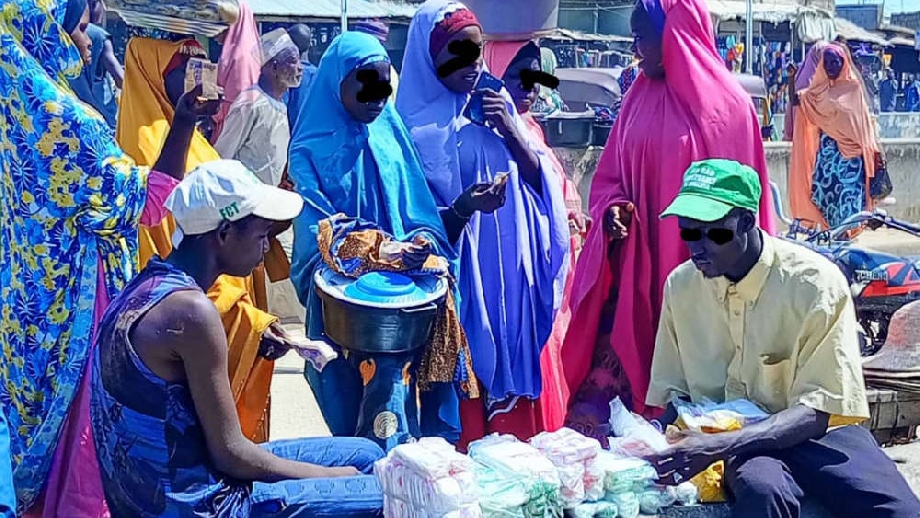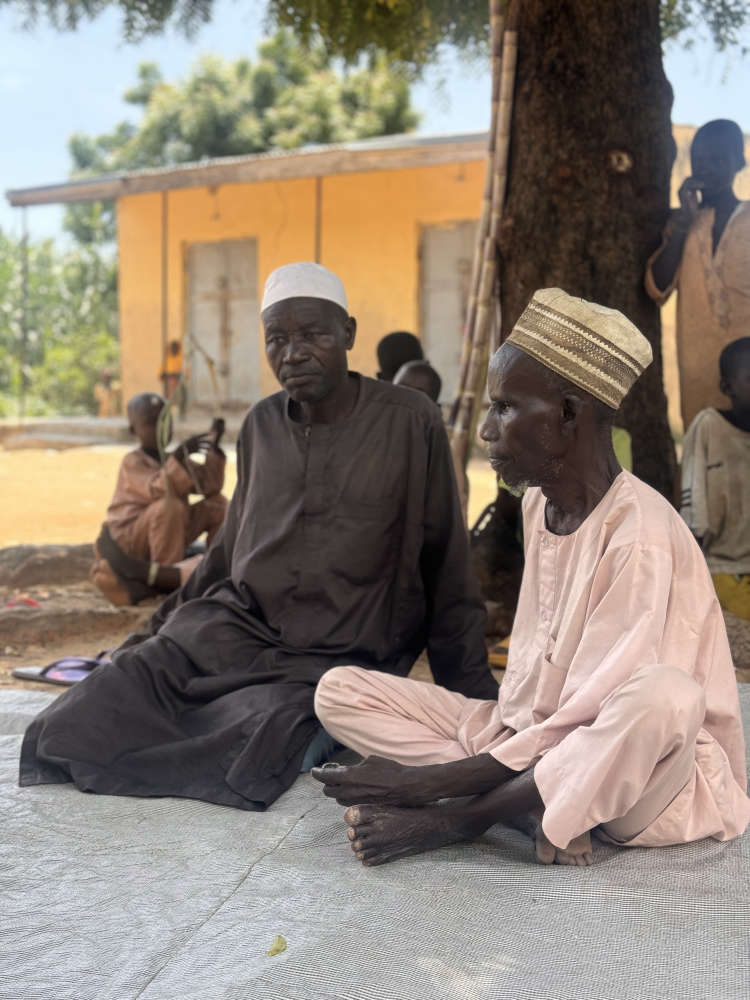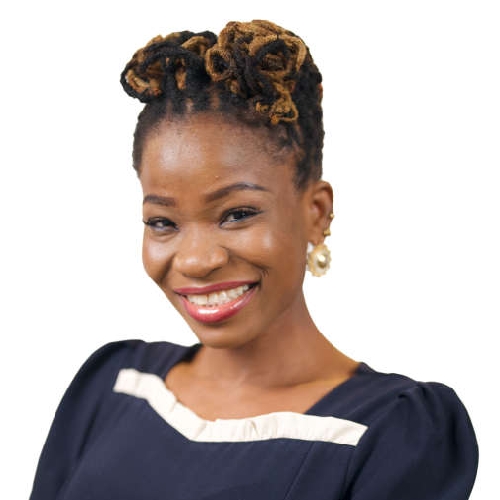
In Kano, the number of out-of-school girls is disturbingly high, especially in rural communities, due to a lack of educational access. The state government recently declared a state of emergency in the education sector. However, beyond the declaration, Kolawole Omoniyi reports that advocates are pushing to mainstream a gender-responsive approach in the state’s Education Sector Plan (ESP) to bridge identified gaps.
The Dan-Shayi community in Rimigado Local Government Area (LGA) of Kano State has not had a secondary school graduate for over 300 years of existence, with most people ending their education in primary school.
The girls usually finish their education at Dan-Shayi Primary School, with a few pursuing further education at Jish-sheme Junior Secondary School (JSS), the only school serving about 15 local communities.
The Jish-sheme JSS is used by various communities including Dan-Shayi, Takaratsa, Bambara, Gadawa, Datsamawa, Raddawa, Hayewa, Tamawa, Gasamawa, Jishema, Cibawa Kwar-nda, and Ayuwa.
While it’s a bit easier for the girls to access the Jishema JSS, none of them could withstand the hurdle of trekking and crossing a large river to reach the nearest Yalwan 'Dan-Ziyal Senior Secondary School which is 15 kilometers away.
Bilikisu Abubakar, a final-year pupil at Dan-Shai Primary School, aspires to become a medical doctor in the future, but she is almost dashing the hope due to high dropout rates among her community seniors.
“I am now in class six. I like to be a doctor, but there is no hope of going further because we don’t have a secondary school here, so maybe I will be trading in the future," she said.
Only Seven NCE Graduates in Dan-Shayi Community
Over three centuries, only seven boys in the village have advanced to the Nigeria Certificate in Education (NCE) level, according to community elder, Abubakar Dan-Shayi.
“We have never produced a university graduate in this community. After primary school education, we usually travel to other states for housekeeping, trading, or other petty jobs.
“Even myself, I left this community after primary school and stayed away for 28 years. Only seven men have an NCE certificate so far, and they did not return to the community,” Abubakar said.
The road to Dan-Shayi is bad; our correspondent abandoned his travel vehicle at a challenging part of the road and used a wooding canoe to cross a large river. He later proceeded with the journey on a commercial motorcycle for about 10 km.
However, Shehu Sani, Dan-Shayi Traditional Leader, compared our correspondent's experience to the daily struggles that a girl child would have to encounter if she is desperate to attend a secondary school in the neighboring community.
“Even at this primary school, academic activities are suspended yearly for about five months during heavy downpours because teachers from neighboring communities cannot cross the big river to the village with a canoe.
“Our women usually get married after primary school, while only a few of them went to JSS. We had called on the government to intervene but to no avail.
"Just three weeks ago, accessing this community was impossible due to a lack of roads. We want our children to be educated, but they are going to farm instead; even the junior secondary school lacks basic facilities like girls' toilets,” he lamented.

Shehu Sani and friend
Similarly, in Gishiri Wuya community, Warawa LGA, only five girls are currently attending a secondary school, 12 kilometers away. The community has only an Islamiyya school, which was later converted into a primary school.
The deplorable condition of Gishiri Wuya road is similar to that of Dan-Tsai. Khadija Ismail and four other girls must trek 4 kilometers from the village to Laraba Abasawa and then ride a motorcycle for another 6 kilometers to reach Imawa JSS.
Ismail shared her experience: “My parents cannot afford the transport fare for the 10 km distance to and fro, but because I want to go to school, I used to trek four kilometers and take a bike to cover the remaining six km.
“I will also trek the remaining 4 km when I return in the afternoon. We are just five girls doing this in my entire community; other girls are not attending secondary schools.”
My parents are planning to send me to Yar Gaya boarding school, if that work out God’s willing, I will be the first person to achieve this in my community," she explained.
Amina Quadri, a primary dropped-out girl in the village, is currently idle until she finds a suitor due to limited school access.
“My parents cannot afford a transport fare of N500 daily to reach the nearest secondary school, so I am not doing anything at the moment.
“Sometimes I used to go to a primary school here just to stay with them since I do nothing, but the teachers used to send me out that I am older than all the pupils in the school.”
The entire Warawa LGA has a single Girls Senior Secondary School, while the boys have two (one day and another boarding school), a situation forcing many of the girls to relocate or drop out-of-school with only those close to the school being fortunate.
The realities in these Rimigado and Warawa communities speak to the declining rate of girls’ enrollment, retention, and completion of school in Nigeria due to a lack of educational access.
Kano has its fair as the state records a 46% literacy rate among young females, while the literacy rate among their male counterparts is 73%, according to the Nigeria Digest of Education Statistics.
The state government understands these challenges, hence its resolve in the Kano State Development Plan (2022-2025) to eliminate gender disparity in access to education, especially in rural areas.
The Kano State's Education Strategic Plan (ESP) (2009–2018) also reveals that gender gaps are most prevalent in poor households where decisions on schooling often exclude certain children.
The state, though, haphazardly outlined strategies in its various frameworks to bridge these gaps; there, however, appears to be a bay between the documents and reality with respect to equitable distribution of infrastructure and resources to schools in urban and rural areas hitherto.
Enrolment: Girls Lead in Primary School, Drop Out in Secondary Schools
Unfortunately, girls are predominantly receiving attention at an earlier stage, leading boys in primary school enrollment but experiencing a significant decline in JSS and SSS classes, according to the Kano State Bureau of Statistics data.
According to the Annual School Census (2021), Kano has 7,048 primary schools, 1,148 junior secondary schools, and just 813 senior secondary schools. Experts also attributed the figures to a decline in retention and completion rates.
Commenting, Dr. Kabiru Ado Zakaria, Executive Secretary of the Kano Senior Secondary School Management Board, even said out of the 813 SSS in the state, 450 are for boys and 363 for girls. He stated that most affected villages lack sufficient size for secondary school establishments.
“You have to site a school where it will be accessible to the majority; the government cannot take a school to where you can hardly get 100 students to enroll, rather a location where students can come from other villages.
“You will notice that 70% of our boarding schools are occupied by girls that came from distances, but unfortunately the previous government closed most of the boarding schools. I know a girl from Tudun Wada that was schooling in Dambatta boarding school because the nearest day school to her village is located in Jos, Plateau State. So after the boarding school was shut, do you expect her parents to allow her to be trekking 20 km daily to access school?
“But if you provide a boarding school, the parents will be confident in enrolling their girl child to stay for a whole term. If you tell a father to pay N500 daily as a transport fare for his daughter to go to school in the next village when he also has other children to feed, that can’t be possible.” Zakarai said.
Kano Needs 92 Boarding Schools to Address Deficit - Official
The Executive Secretary proposed the establishment of at least 92 functional boarding schools across 23 zones for secondary schools in 44 LGAs in Kano to fill gaps.
“Currently 20 boarding schools are functional in Kano; the state is making efforts to resuscitate more, but we must get at least four in each of our 23 zones for secondary schools in the state to cover the deficit. While this is easier said, the financial implication of managing them is huge because it takes a lot of commitment from the government to even sustain the existing ones.” He noted.
Besides, Kano State has also been doing fantastically well in terms of budget allocation to the education sector. The state even declared a state of emergency for education, despite exceeding UNESCO's 26% budget allocation. However, releasing funds for essential priorities remains challenging.
For instance, Education dominates 2025 appropriation bill, accounting for 31% of N549 billion budget presented by Governor Abba Kabir Yusuf on Friday, up from 29% in 2024 budget of N437.3 billion.
While awaiting the release of the third quarter of the 2024 budget performance in the sector, the first six months of 2024 saw a poor budget performance of 8.9%, with only over 1.1bn released out of the N13 billion education budgets, according to data published by the state Ministry of Budget and Planning.
Kano Education Budget Performance 2024 (January – June)
|
2024 Original Budget |
Quarter 2 Performance |
2024 Performance Year to Date (Q1-Q2) |
% Performance Year to Date against 2024 Original Budget |
Balance (against Original Budget) |
|
13,147,459,398.00 |
1,133,158,653.00 |
1,171,616,367.33 |
8.9% |
11,975,843,030.67 |
Source: KSMPB Website
Reacting, Amina Kasim, the Coordinator for Girls’ Education at the Kano State Ministry of Education, showers accolades on the state government over his priority to education. She, however, advocates for a deliberate approach to prioritizing the release of funds for programs designed to boost girls’ education in the state.
“The governor had given approval since December 2023 for the implementation of some of our initiatives, especially for special girl children, but there was no release of funds. We represented the memo again in 2024, and the governor gave another approval within two days, yet there was no release.”
“We are now in October 2024, which is the last quarter of the year, and we have not gotten anything for the program. So the release of funds is our major challenge. But in other aspects, we have been working with MDAs (Ministry, Departments, and Agencies) and development partners for synergy on inclusivity in favour of girls.” Kasim said.
Previous Strategies Unrealistic – Kano Govt
When contacted, Umar Haruna Doguwa, the state commissioner for education, criticized previous administrations' strategic plans for being unrealistic.
“People just sat down, drank tea, and wrote whatever they think they can write in the education plan that is not implementable.
“Now we are reviewing the current Kano education law that was promulgated since 1964, which is older than the Nigerian constitution, we also have some other policies before the executive as well as a comprehensive strategic plan that is gender sensitive; we will soon unfold them at a press conference.” He said.
The commissioner outlined ongoing gender-responsive interventions by the state government, including distributing 20,000 uniforms to 48,500 girls, renovating 72 buses, increasing feeding allowance by 100%, and implementing a Teacher Policy on Girl Child Education.
Corroborating the commissioner’s claim, the state governor, Abba Kabir Yusuf, confirmed some education sector-drafted policies before the executive during his presentation of the 2025 appropriation bill before the assembly on Friday.
He said: “Government has taken a deliberate step in ensuring that the sector is firmly rooted in appropriate policies and law. In this regard, six drafts have been forwarded by the Ministry of Education as follows: Kano Education Law, 2024; Kano Teacher Development Policy; Kano Non- State Actor Policy; Kano State Early Child Care & Development (ECCD) and Kano State Girl-Child Education Policy.”
GRESP Far From Reality in Kano - Expert
However, while these measures are appreciated, experts emphasize the need to integrate gender-responsive indicators into those policies and harmonize them in the Kano State Education Sector Plan
Mohammed Bello, Chief Executive Officer of the Africa Center for Innovative Research and Development, said such a move would pave the way for a Gender Responsive Education Sector Planning (GREPS) that could integrate all international and national education policies billed for domestication in the state.
GREPS aims to address gender issues in education through gender-sensitive plans and policies, focusing on promoting gender equality beyond mere parity in education policies.
Bello said: “In terms of Kano ESP being gender responsive, it is far from reality. Truly, Kano has made tremendous efforts in funding initiatives to motivate the girl child education, but there are no specific and measurable indicators to say this is what the numbers are saying and how the gender disparity gaps are being closed because the last education census in Kano shows disparity in education in favour of boys.” Bello said.
Bello highlighted some of the gender responsive indicators, including separate WASH facilities for females and males, to address the issue of girls staying away from class during menstruation.
Others are scholarships for underprivileged girls, rural education access, resource mobilization for boys and girls, gender-responsive curriculum development, and reducing male-to-female teacher recruitment, training, and leadership positions.
“For instance, we don’t want to see a curriculum that shows the boys wearing telescopes and the girls in the kitchen as if only boys are meant to study science courses. Another indicator is the ratio of male to female teachers and training opportunities.
“Also, we should see leadership in school incorporating females and also provision of guardians and counseling females to counsel these girls on the path to career living." Bello said.
He also advised that the state should domesticate the National Policy on Education and integrate all national policies addressing gender mainstreaming into state policy.
“The state needs to take deliberate step in the domestication of the National Policy on Education and ensure that all the national policies that target mainstreaming gender in education will now be integrated into the state policy that is being domesticated to contextualize the policy looking at the education landscape of the state and the existing national frameworks.
“The frameworks include the National Policy on Gender in Education, the National Gender Policy on Basic Education, the Convectional Framework SDG 4 and 5, they have to bring all these frameworks together and see how they can be contextualized in Kano State and integrated into the state education sector policy because you need a comprehensive framework that is gender responsive that guides the education service delivery at state level and that single document you can always pinpoint to should be Kano State Policy on Education, now they (Kano) don’t have that.” He added.
However, implementing these measures will not only help the likes of Bilikisu and Khadija to further their secondary education but also improve the current completion rate and provide enough resources for the girl child programs.


